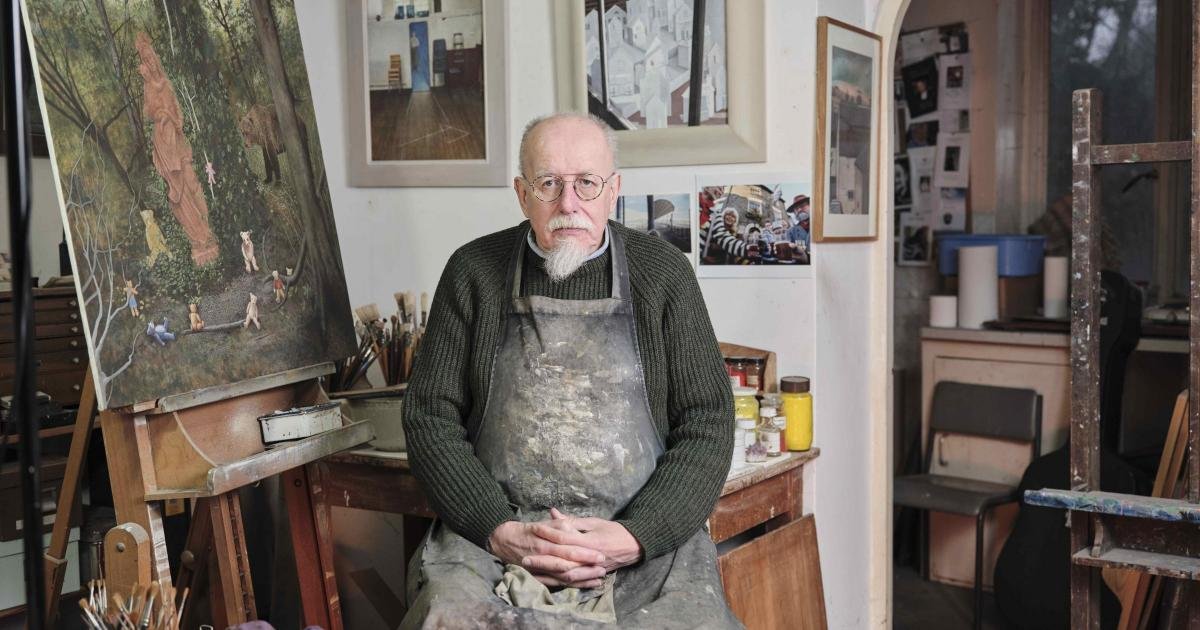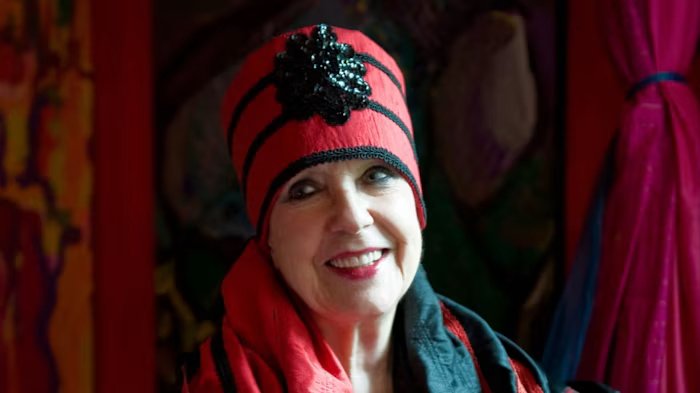“When we were young we watched our parents pack boxes with essentials like the items you see here and they would send them to friends and family back home in the Philippines,” says Pineda.
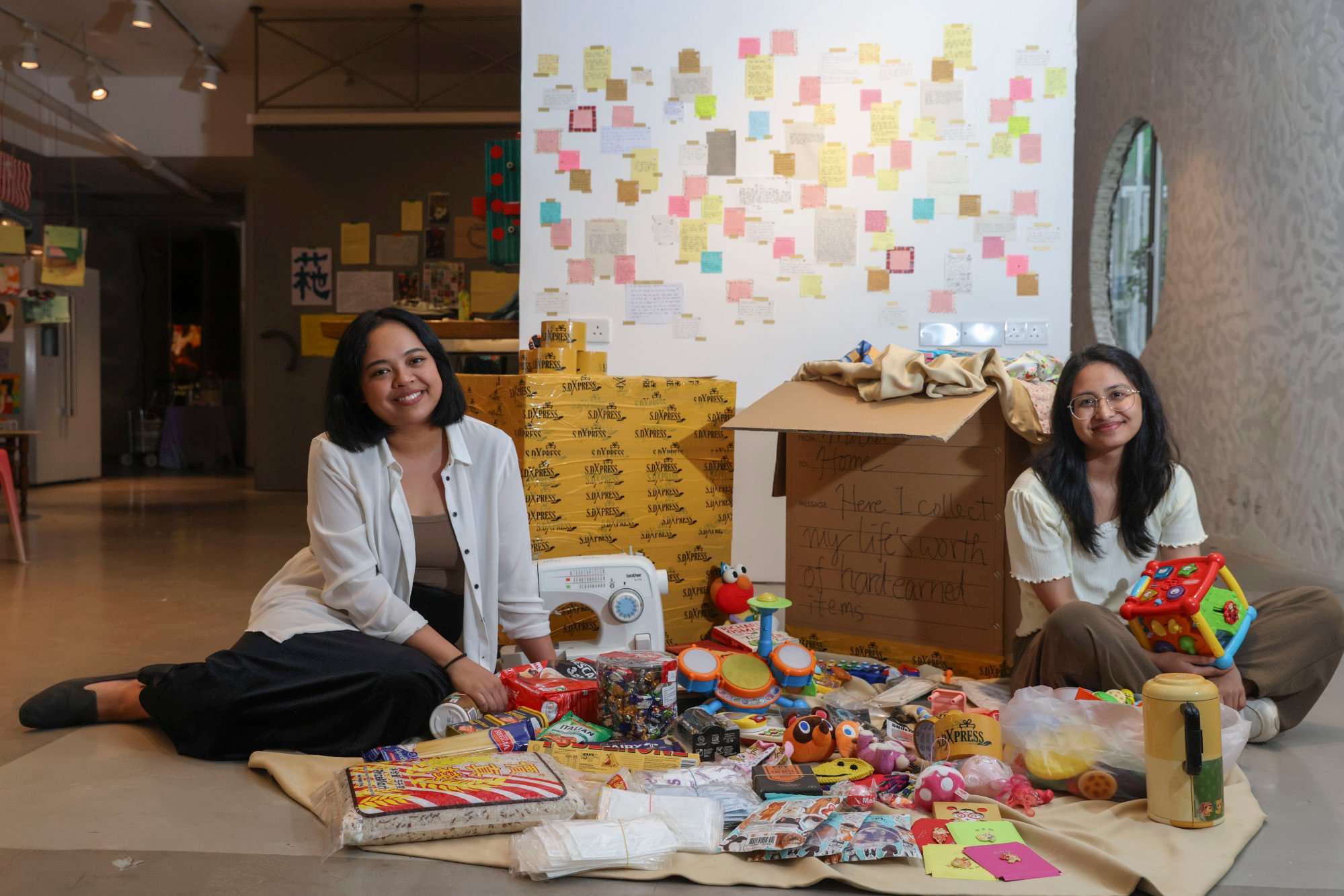
They are called balikbayan boxes, she says, the word a portmanteau of the Tagalog words balik (to return) and bayan (homeland).
Filipinos love receiving them from family members living abroad – who form a huge community; more than 2.33 million Filipinos work overseas, and more than 200,000 of these as domestic helpers in Hong Kong.
Balikbayan boxes are typically packed with material goods but also filled with sentiment, says Sikdar, who is Indian Filipino, the recipients overjoyed at being remembered by loved ones far away.
We’ve wondered if there is any difference between [members of] ethnic minorities and the Thermocool boxes commonly strewn across Hong Kong, discarded when they are no longer needed
Showcasing the work of 17 artists, and migrant groups, the exhibition explores the diasporic experience in Hong Kong though music, film and video, print and painting.
Curator Nicole Nepomuceno thought marginalia – personal notes written in the margins of a text – was the perfect metaphor to capture the perspectives of migrants.
“Marginalia is a collection of annotations, additions, responses and reflections from those who have occupied marginal positionings or who work with materials and practices deemed peripheral,” says Nepomuceno.
The exhibition celebrates creations found in homes and places of gathering, “learnt from friends and elders, and rooted in the routes of our migration”, she adds.
Abhishek Desai and Krupa Joshi, the creative duo behind integrative design studio Pop & Zebra, collected discarded Styrofoam boxes from a wet market in Sheung Wan and transformed 24 of them into giant mahjong tiles.
Using tape in the distinctive red, green and blue colours of mahjong tiles, they created portraits of artists taking part in the exhibition.
“At times, we’ve wondered if there is any difference between [members of] ethnic minorities and the Thermocool boxes commonly strewn across Hong Kong, discarded when they are no longer needed,” says Desai.
The second part of Desai and Joshi’s mixed-media installation invites people to peek into their lives through four interactive viewfinders fashioned from cardboard boxes. Some have childhood photos, others words. All have bells on them.
“In India, this bell sound signals the arrival of a sugarcane vendor,” says Desai. “We all love these small magical things that we can enjoy without any prejudice or bias. It’s about celebrating our similarities.”
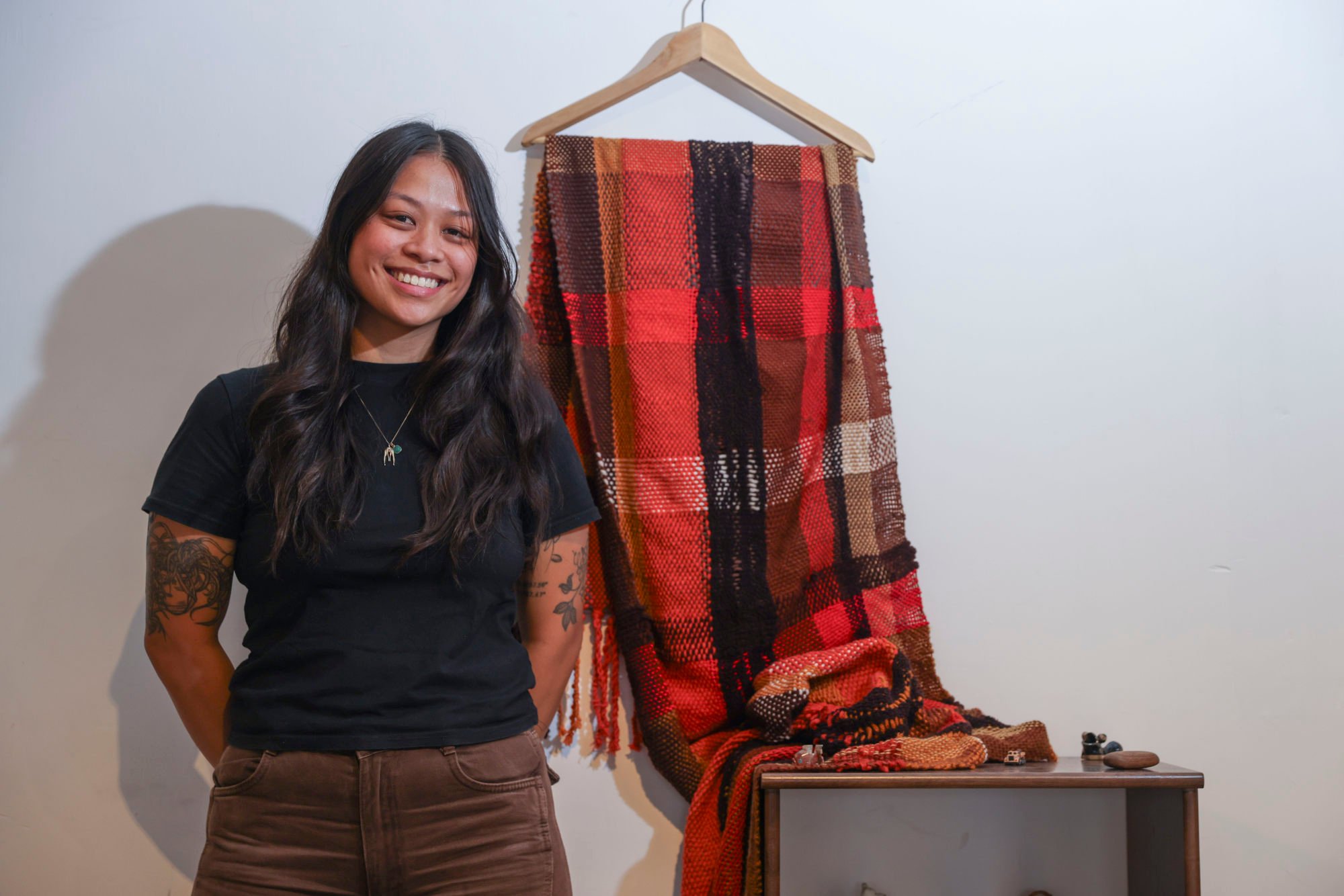
In “little pockets”, Hong Kong-based Filipino interdisciplinary artist Katrina Leigh Mendoza Raimann dug deep into the psychology of anting-anting, the Filipino phrase for amulet or charm, by showing a collection of found objects.
Carrying objects for good luck and guidance intrigues her.
“I have been carrying this around for six years,” says Raimann, holding up one of the pieces, a wooden block she carved into the shape of a pebble that has become smooth over time and darkened from the natural oils in the skin of her hands.
Holding it tight, she says, helps relieve stress, the piece acting like a calming security blanket – which is apt considering Raimann specialises in textile art. Next to the collection is a four-metre (13ft) blanket she knitted, the piece designed to provide extra warmth and protection.
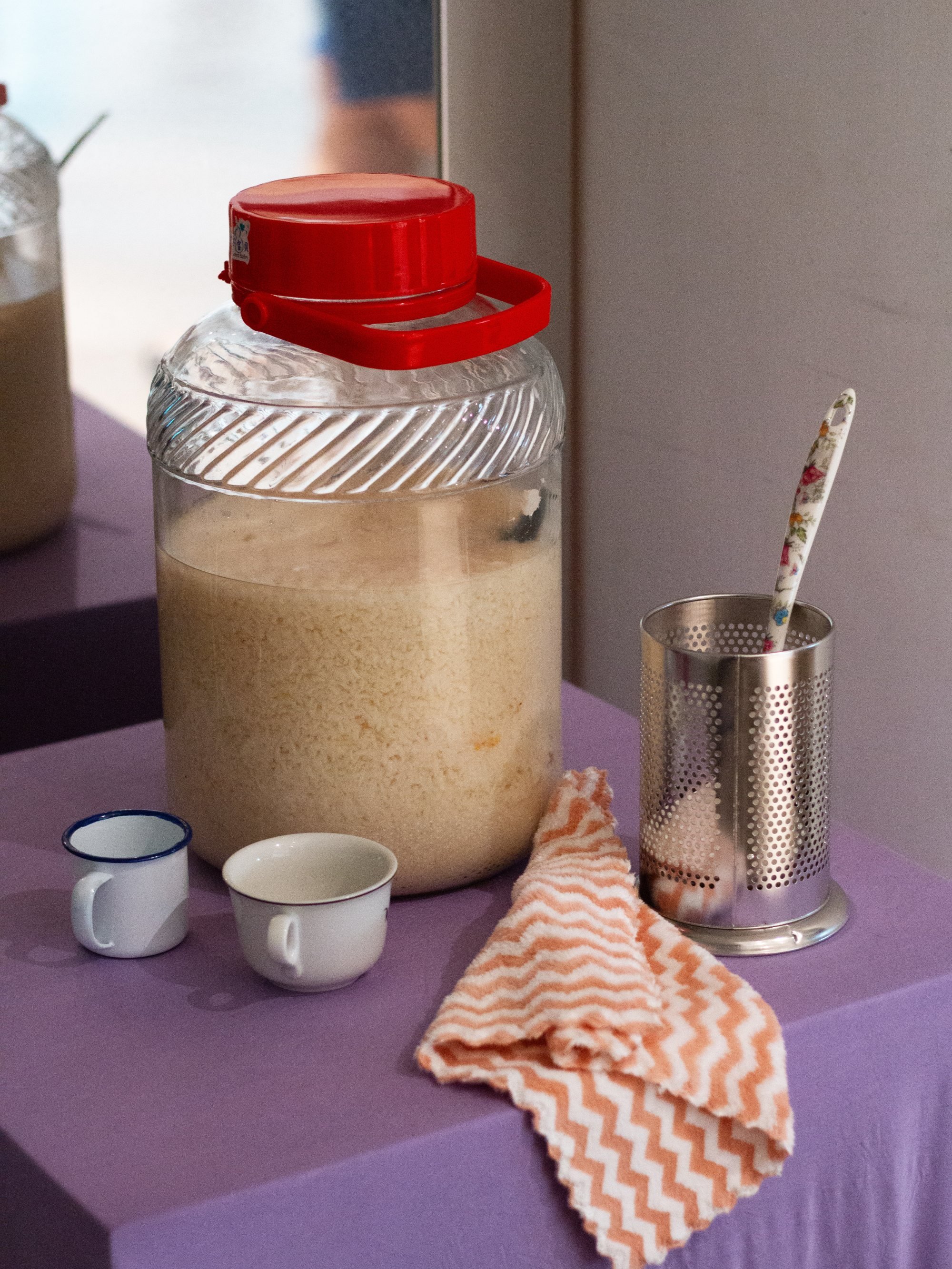
In Jaad from Home, Chandramaya Sunwar provides a taste of her home with jaad, a Nepali wine she makes with rice leftover from meals. Artist Arnel Agawin’s work recalls the wave of Filipino musicians who were active in Hong Kong in the 1980s and 90s.
Also featured are paintings by members of the Indonesian Migrant Workers Union and the United Indonesians Against Overcharging, and works by Guhit Kulay, a Filipino migrant artist collective.
There is a lot to take in, which is ironic given that, historically, ethnic minority artists living in Hong Kong have long struggled to find support, something Nepomuceno was eager to address.
And it doesn’t stop with exhibits. A series of workshops on topics from cooking to live drawing have been woven into the programme.
“marginalia (notes from the peripheries)”, Current Plans, 3/F Remex Centre, 42 Wong Chuk Hang Rd, Thursdays to Saturdays, and certain Sundays, 2pm to 8pm. Ends June 30


